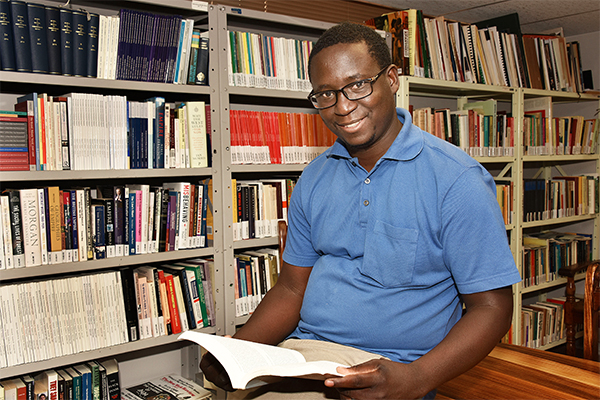Latest News Archive
Please select Category, Year, and then Month to display items
![]()
The closing date for the submission of nominations for five members of the Convocation to the Excom of the Convocation was 18 May 2020 at 16:30. A total of six nominations were received and scrutinised, after which two nominations were declared invalid due to substantial non-conformance with the requirements laid down. The remaining four candidates are thus elected to the Excom and will serve for a period not exceeding five years.
We wish to congratulate the following four officials (in alphabetical order) with their election to the Excom of the Convocation:
1. Dr Pieter Bettings
2. Ms Ntombi Nhlapo
3. Mr Ntakuseni Razwiedani
4. Ms Nokuthula Sithole
A meeting of the Excom of the Convocation will be scheduled to discuss the one remaining vacancy in the Excom.
We wish to express our sincere gratitude to all those who participated in this process as well for their interest in, and commitment to the University and its affairs.
Received from: The Registrar and the President of the Convocation
Land a fertile field for historians
2017-12-25

Dr Admire Mseba, historian and researcher in the International Studies Group (ISG).
Photo: Charl Devenish
The use of land and the economics of Southern Africa at present is a contentious subject at almost every level of society. A historian and researcher who revels in happenings in these two areas, is Dr Admire Mseba, a postdoctoral research fellow in the International Studies Group (ISG) at the UFS.
Dr Mseba grew up in the Mberengwa region in southern Zimbabwe, known for cattle farming and mineral mining. While at the University of Zimbabwe, he became interested in economic history and archaeology, and completed his PhD at the University of Iowa in the USA. During his time there, Dr Mseba also became passionate about environmental history.
A historian's ability to think and engage critically on diverse subjects drew Dr Mseba to his field. Currently, he is busy with three research projects. Firstly, he is working on a book on social relations, about access to land in Zimbabwe. He is also examining regional and national efforts to control migratory pests during the 20th century, in particular, the red locust. In collaboration with a colleague at the ISG, Dr Mseba is also researching monetary systems in central Africa, covering the present-day countries of Zimbabwe, Malawi, and Zambia.
Dr Mseba believes future research opportunities in the domains of economic and environmental history abound. For one, the land question has been very topical in Zimbabwe for more than a decade—as it is now in South Africa—and needs more scrutiny. Regarding agrarian pestilences, he indicates the recent phenomenon of armyworm invasion. “There are so many opportunities for historians to investigate. There are so many ways to think about these things and trying to put it in perspective.”